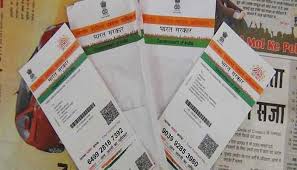
The Capital’s tallest building, the 28-storey Civic Centre near the New Delhi Railway Station, is hardly a hub of action on a weekend night. But September 30 was not like any other Friday evening. It was the last day of the government’s Income Declaration Scheme (IDS). And hours before the midnight deadline, top officials in Mumbai and New Delhi confirmed that the response was overwhelming. Till 11 pm, the pan-India declarations had exceeded Rs 65,000 crore, implying a tax amount or earning of Rs 30,000 crore for the government.
While the final tally will be announced by Finance Minister Arun Jaitley at a press conference on Saturday afternoon, till evening of Friday, Hyderabad emerged as a top destination with declaration of Rs 13,000 crore, followed by Mumbai (Rs 8,500 crore), New Delhi (Rs 6,000 crore) and Kolkata (Rs 4,000 crore).
Business Standard visited Delhi’s Civic Centre, which houses one of the largest income tax offices in the country, to do a reality check of the Narendra Modi government’s ambitious black money declaration scheme just before the window closed. At the main gate, the register kept for visitors’ entry got filled and the second register had more than 100 entries at 9 pm. The basement parking was overflowing through the day, a clear indication that the scheme had picked up momentum on the last day.
Across several floors of the building, aides of those declaring undisclosed income were lined up till late in the evening. All top officers were at work, handholding people who wanted to come out clean, by paying 45 per cent tax on the declared amount. Among the people who had rushed with the income papers along with fat cheques was a 20 something man with a backpack. He represented a businessman, but remained tight-lipped, in the spirit of the scheme that promises not to give away any detail of the people who had responded to the government’s call.
There were more like him, sitting on sofas outside the commissioners’ rooms or at the elevators, trying to reach the right floor before midnight.
“I am just delivering the form for someone else. This is not my declaration,” said one of those, when asked why he waited for the last minute to make the disclosure.
A helpful principal commissioner pointed out that there was a rush of people over the last two days, with most seeking clarifications about the scheme. Many of the last day declarants were the ones whose forms were rejected earlier because of incomplete information, a source said.
With a sigh of relief, another principal commissioner at 10 pm said over Rs 200 crore worth declarations were received in his office, helping him meet the expectations.
There was no time to break for dinner but cooks, sourced from a prominent restaurant chain, were at work, making cuisines for close to 100 people who stayed up till midnight to accept declarations.
A tax officer gave out the secret of the scheme’s success. “Besides the 900,000 letters that were sent out, we intimated individuals whose information we had. Most of them chose to declare it under the scheme to avoid the risk of prosecution after the window closed,” he said.
In fact, it was during the surveys that many individuals decided to declare their unaccounted income or assets. “During surveys, they asked if they could still declare it. We agreed, and that worked,” he said. In the 1997 tax amnesty scheme — Voluntary Disclosure of Income Scheme (VDIS) — the government had received Rs 33,000 crore in declarations. In contrast, only about 644 declarations worth Rs 4,164 crore were made under the black money window for foreign assets last year, resulting in tax collection of Rs 2,428 crore.
The stiff warning from the Prime Minister against the black money holders earlier this month may have also acted as a trigger for people to avail the one-time Scheme. Modi, in an interview to a private channel, had said, “No one should blame me if I take tough decisions after the 30th (of September).”
The IDS, which charges a one-time effective tax rate of 45 per cent on undisclosed income or property, gave a chance to domestic taxpayers to declare undisclosed income or assets by September 30 and avail immunity from prosecution under the Income-tax Act, Wealth Tax Act and Benami Transactions (Prohibition) Act.
Source: http://www.business-standard.com/article/economy-policy/income-declaration-scheme-rs-65-000-cr-and-counting-116093001207_1.html






